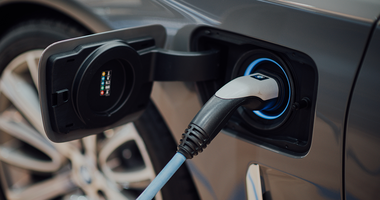Car insurance is a crucial investment for any driver. It not only protects your vehicle but also provides financial security in case of an accident or theft. In fact, in most countries, having car insurance is mandatory by law. This is because driving without insurance can result in hefty fines and legal consequences. But beyond the legal requirements, there are several reasons why car insurance is so important. In this blog post, we'll explore why car insurance is simply a must-have if you own a car.
Defining Car Insurance & How It Works
Car insurance is a type of insurance policy that provides coverage against losses incurred due to accidents, theft, or damage to the insured vehicle. It works by the policyholder paying a premium to an insurance company, which in turn agrees to cover the costs of any damages or losses up to a certain amount as outlined in the policy agreement. In essence, car insurance allows drivers to transfer the financial risk of driving onto the insurance company, which can help alleviate the burden of unexpected and often costly incidents on the road. However, it's important to note that not all car insurance policies are created equal, and the level of coverage and benefits offered may vary depending on the policy chosen.
Benefits of Having Car Insurance
Aside from the legal requirements of having car insurance, there are several benefits that come with it. One of the most obvious advantages is the peace of mind that comes with knowing that you're protected in case of an accident or theft. With car insurance, you don't have to worry about the financial burden of repairing or replacing your vehicle, which can be especially helpful if you're on a tight budget.
Another benefit of having car insurance is the protection it provides for other drivers and pedestrians on the road. If you're involved in an accident that causes injury or damage to someone else's property, your insurance policy can cover the costs of their medical bills or repairs. This not only helps the other party involved, but it also protects you from being held personally liable for the damages.
In addition, some car insurance policies offer additional benefits such as roadside assistance, rental car coverage, and even coverage for personal belongings that may be stolen from your car. Certain providers, like Outsurance and others, also offer cashback rewards should you remain claim free for certain periods. These added benefits can make dealing with unexpected incidents on the road much easier and less stressful.
Overall, car insurance is an essential investment for any driver. It not only protects your own vehicle but also provides financial security and peace of mind for you and others on the road.
Types of Coverage & What They Include
When it comes to car insurance, there are several types of coverage available, each with its own set of benefits and limitations. The most common types of car insurance coverage include liability coverage, collision coverage, and comprehensive coverage.
Liability coverage is the most basic type of car insurance and is typically required by law. It covers the costs associated with any injuries or damages you may cause to another person or their property while driving your vehicle. This type of coverage does not cover any damage to your own vehicle.
Collision coverage, on the other hand, provides coverage for damages to your own vehicle that occur as a result of a collision with another vehicle or object. This type of coverage is optional but can be helpful if you have a newer or more expensive vehicle that would be costly to repair or replace.
Comprehensive coverage provides coverage for damages to your vehicle that occur as a result of non-collision incidents such as theft, vandalism, or natural disasters. This type of coverage is also optional but can provide added peace of mind knowing that you're protected against a wider range of risks.
Other types of car insurance coverage include personal injury protection, which provides coverage for medical expenses and lost wages in the event of an accident, and uninsured/underinsured motorist coverage, which provides coverage if you're involved in an accident with someone who doesn't have enough insurance to cover the damages.
Ultimately, the type of car insurance coverage you choose will depend on your individual needs and budget. It's important to carefully consider your options and choose a policy that provides adequate coverage for your specific situation.
Why You Should Make Sure You Have Enough Coverage
Having car insurance is crucial, but having enough coverage is just as important. While it may be tempting to choose the cheapest policy available, this may not provide enough coverage in the event of an accident or other unexpected incident on the road. If you don't have enough coverage, you may be left with significant out-of-pocket expenses that could have easily been covered by a more comprehensive policy.
For example, if you only have liability coverage and you cause an accident that results in significant injuries or damages, you may be responsible for paying for the other party's medical bills or repairs out of your own pocket. This can quickly add up to thousands of dollars or more, and could even lead to legal action against you.
Similarly, if you only have collision coverage but not comprehensive coverage, you may not be covered in the event of theft, vandalism, or other non-collision incidents. This could leave you without a vehicle and facing significant expenses to repair or replace it.
By making sure you have enough coverage, you can avoid these types of situations and have peace of mind knowing that you're protected against a wide range of risks. When choosing a car insurance policy, it's important to carefully consider your needs and budget, and to work with a reputable insurance provider who can help you find the right level of coverage for your specific situation.
Tips for Shopping for Car Insurance
When shopping for car insurance, it's important to keep a few key tips in mind. First, make sure to compare quotes from multiple providers to ensure you're getting the best possible rate. You can do this easily online, but it may also be helpful to speak with an agent directly to get a more personalized quote.
Second, consider bundling your car insurance with other types of insurance such as homeowners or renters insurance. Many insurance providers offer discounts for bundling, which can help you save money on your overall insurance costs.
Third, pay attention to the excess amounts for each type of coverage. An excess is a pre-agreed amount that becomes payable whenever you make an insurance claim. A higher excess may result in lower monthly premiums, but could also mean higher out-of-pocket costs in the event of an accident. Make sure to choose an excess amount that you're comfortable with and that fits within your budget.
Finally, don't be afraid to ask questions and seek clarification on any terms or conditions that you don't understand. A reputable insurance provider should be happy to answer your questions and provide guidance to help you make an informed decision about your coverage.
Common Mistakes People Make When Buying Car Insurance & How to Avoid Them
One common mistake that people make when buying car insurance is choosing the cheapest policy available without considering their actual needs. While it's important to find a policy that fits your budget, you should also ensure that it provides adequate coverage for your specific situation. Failing to do so could leave you vulnerable to significant expenses in the event of an accident or other incident.
Another mistake is not disclosing all relevant information to your insurance provider. This could include things like previous accidents or traffic violations, as well as modifications made to your vehicle. Failing to disclose this information could result in your claim being denied or your policy being cancelled.
It's also important to be aware of any exclusions or limitations in your policy. For example, some policies may have restrictions on who can drive your vehicle or where it can be driven. Make sure to carefully review your policy and ask questions if there's anything you're unsure about.
To avoid these mistakes, take the time to carefully consider your coverage needs and work with a reputable insurance provider who can help guide you through the process. By doing so, you can ensure that you have the right level of coverage to protect yourself and your vehicle on the road.
Conclusion
Buying car insurance can be a daunting task, but taking the time to research and understand your options can help you make an informed decision. Be sure to get quotes from multiple providers, consider bundling policies, pay attention to excess amounts, and ask questions when you're unsure about anything. Avoid common mistakes such as choosing the cheapest policy without considering your needs, not disclosing all relevant information, and overlooking policy exclusions or limitations. By following these guidelines and working with a reputable provider, you can find the right car insurance coverage to fit your budget and protect you on the road.
Now that you have the lowdown on car insurance, are you ready to buy your dream car? Get it on Gumtree! There are over 50,000 cars listed on Gumtree. Whether you're looking for a small car, family car, vintage car, fancy car, or your next project car; we've got it all! Browse Cars & Bakkies on Gumtree.




